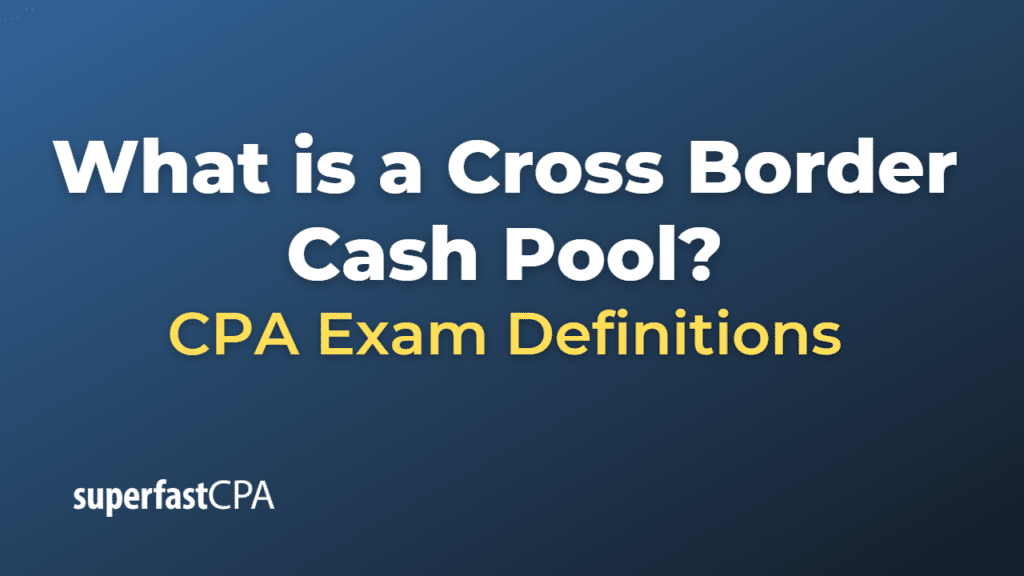Cross Border Cash Pool
A cross-border cash pool is a cash management technique used by multinational companies to optimize the liquidity management of their subsidiaries across different countries. The goal is to offset positive and negative balances of different accounts within the company to reduce banking costs and improve overall cash efficiency.
In a cross-border cash pool, cash balances (which can be either credit or debit) from different accounts are consolidated into one master account. The company can then use the surplus cash from the subsidiaries with positive balances to fund the ones with negative balances. This eliminates the need to externally borrow money for the subsidiaries with deficits, which can save the company borrowing costs. It also allows subsidiaries with excess cash to effectively “invest” their surpluses within the company rather than letting the money sit idle.
Cross-border cash pooling can be done in two main ways: notional pooling and zero-balancing (or sweeping).
- Notional Pooling: In this method, all account balances remain legally in their respective accounts, but for the purpose of interest calculations, they are notionally consolidated. This means that the bank calculates the net balance of all accounts and applies interest as if it were one single account, without the need for physical transfer of funds.
- Zero-Balancing (or Sweeping): In this method, at the end of each day, all account balances are physically transferred to the master account, which means that each subsidiary account starts the next day with a zero balance. The cash is then redistributed at the beginning of the next day according to the needs of each subsidiary.
Cross-border cash pooling can offer significant benefits to multinational companies, such as improved liquidity management, reduced external borrowing, and enhanced interest yields. However, it also involves certain risks and complexities, such as tax implications, transfer pricing issues, and regulatory requirements in different countries. Thus, it requires careful management and expert advice.
Example of Cross Border Cash Pool
Let’s take a hypothetical example of a multinational company, GlobalTech Inc., that has subsidiaries in the USA, UK, and Germany.
Let’s say at the end of a business day:
- The US subsidiary has a cash surplus of $500,000.
- The UK subsidiary has a cash deficit of $300,000.
- The German subsidiary has a cash deficit of $200,000.
Without a cash pool, each subsidiary would handle its cash position independently. The US subsidiary might deposit its surplus in a bank account earning minimal interest, while the UK and German subsidiaries might need to borrow money to cover their deficits, incurring interest expenses.
However, with cross-border cash pooling, GlobalTech Inc. can optimize its cash management:
- Notional Pooling: The bank would notionally consolidate the balances of all three subsidiaries: $500,000 (US) – $300,000 (UK) – $200,000 (Germany) = $0. This means that despite the deficits in the UK and Germany, GlobalTech Inc. as a whole would not have to borrow money or pay interest, nor would it earn any interest.
- Zero-Balancing (Sweeping): At the end of the day, the $500,000 from the US subsidiary would be physically transferred to a master account. From this master account, $300,000 would be transferred to the UK subsidiary and $200,000 to the German subsidiary, thereby covering their deficits. The next day, each subsidiary would start with a zero balance, and the cash would be redistributed according to each subsidiary’s needs.
This is a simplified example, but it illustrates how cross-border cash pooling can help a multinational company optimize its cash management by using surpluses in some subsidiaries to cover deficits in others, reducing the need for external borrowing and potentially earning a better return on surplus cash.













